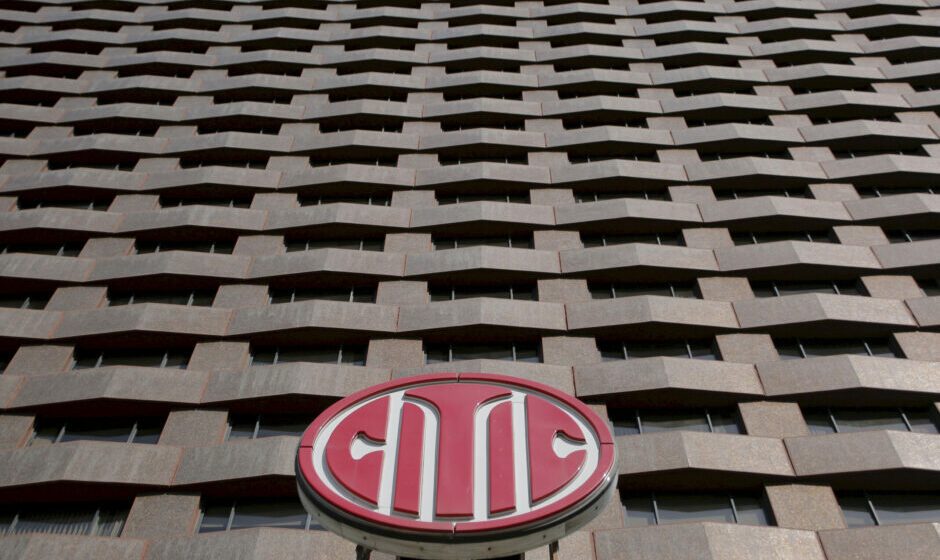Global carmakers from Volkswagen to Toyota are introducing new models at the Beijing Auto Show 2024 with the help of Chinese tech companies in an effort to defend market share amid a major shift to electric vehicles led by local car giants.
The biannual trade event, which on Thursday witnessed a return to pre-pandemic attendance levels after a brief pause in 2022, also represents another landmark moment for the Chinese EV sector where domestic players are once again on the offensive with an array of new models. A similar event in Shanghai a year ago reportedly prompted the industry’s legacy players to either increase their efforts or rethink their brands in order to adapt to the changes.
Below, TechNode provides a summary of some of the biggest releases from both international and Chinese automakers, including BYD, GAC, Geely, Honda, Toyota, and Volkswagen. There are also some notable updates from younger players such as Xiaomi, NIO, and Xpeng, which might give a clue as to where the most competitive EV market in the world is heading.
BYD rolled out the Qin L, with an expected price tag of RMB 120,000 ($16,560), at this year’s Beijing Auto Show in the Chinese capital on Thursday, April 25, 2024. Credit: BYD
China’s biggest EV maker on Thursday unveiled a higher-end variant of its Qin vehicle, the top-selling compact sedan in the country last year. The new car is scheduled for launch in the second quarter with an expected price tag of RMB 120,000 ($16,560). The Qin L measures 4.8 meters in length and spans a 2,790-millimeter-long wheelbase, placing it between the Qin Plus and the Han in terms of size. It features the company’s next-generation plug-in hybrid platform DM-i 5.0, which could suggest an improvement in range and fuel efficiency. The company also introduced the Seal 06, a plug-in hybrid EV under the Ocean lineup which is about the same size as the Qin L but loaded with more stylish design language to attract younger customers.
Gu Huinan, general manager of GAC’s Aion unit, introduced the Aion V at the 2024 Beijing Auto Show in the Chinese capital on Thursday, April 25, 2024. Credit: GAC
Aion, the third best-selling EV brand in China last year after BYD and Tesla, showcased its first global model, replete with modern technologies and angular styling, as its state-owned parent beefs up its strategy to woo customers worldwide. GAC said its all-new Aion V, scheduled for launch in July, will maintain a driving range of over 750 kilometers (466 miles) even when the mercury dips to -30 degrees Celsius, and offers a large interior space comparable to the likes of the BMW X5. The all-electric sports utility vehicle, which incorporates traditional Chinese dragons into its design, can navigate varied urban environments worldwide with features such as lane switching by utilizing advanced artificial intelligence algorithms to process sensor data instead of high-precision maps, the company said.
A Zeekr Mix van was displayed at the 2024 Beijing Auto Show in the Chinese capital on Thursday, April 25, 2024. Credit: Geely/Zeekr
Volvo’s parent showed its ambition to become a disruptive force in the global automotive industry with the debut of what it described as the world’s first production model with two sliding doors and front swivel seats. Geely has taken a radical approach to how EVs are put together, giving the 4.7 meter-long Zeekr Mix an extended wheelbase of three meters achieved through a more compact electric motor, shorter front overhangs, and repositioning of the air conditioning system, among other components. This, along with the front seats that can rotate 270 degrees, would allow kids to play or families to dine together in a 1.5 square meter interior flat space. The five-seater multi-purpose vehicle, offering a 1.5 meter width opening area for passengers, targets three-generation Chinese families, especially those with elders and pregnant mothers.
A Honda e:NP2 SUV was displayed at the 2024 Beijing Auto Show in the Chinese capital on Thursday, April 25, 2024. Credit: Honda/GAC
Japan’s Honda on Thursday began selling its second all-electric model with time-limited discounts in China in the company’s latest effort to boost sales. The move comes after entrenched rivals such as BYD and Tesla recently rolled out more price cuts amid slowing growth. The e:NP2 SUV has a driving range of 545 km at a price tag of RMB 159,800, providing buyers with a RMB 30,000 reduction compared to its original plan, according to Li Jin, a deputy general manager of Honda’s China joint venture with GAC. Honda also debuted the Ye, a new series of all-electrics with technologies sourced from Huawei and iFlyTek among other Chinese tech firms, as part of its plan to sell only EVs in China by 2035.
A Toyota bZ3x crossover was displayed at the 2024 Beijing Auto Show in the Chinese capital on Thursday, April 25, 2024. Credit: Toyota/GAC
Toyota said on Thursday it will integrate lidar sensors into its two upcoming models under the “Beyond Zero” (bZ) all-electric series, as the world’s top-selling automaker looks to provide consumers with the same level of assisted driving technology as Huawei and Xiaomi. The bZ3x and the bZ3c compact crossovers will be able to automatically change lanes, and enter and exit Chinese highways when they go on sale within the next 12 months. Toyota also announced it is exploring the uses of generative AI in collaboration with Tencent, as Chinese consumers expect their future vehicles to be more capable and personalized. This follows reports that the Japanese giant is using Huawei components to enable autonomous driving functions on its China-made EVs.
An ID.Code concept was showcased at the Volkswagen Group media night in Beijing on Wednesday, April 24, 2024. Credit: Volkswagen
Germany’s biggest carmaker participated in Auto Beijing 2024 with major global debuts including the ID.Code concept – which offers a glimpse into its upcoming, China-specific all-electric lineup ID.UX – as well as the Audi Q6L e-tron, the first production model based on its PPE electric platform. The coupe-styled ID.Code will be equipped for highly autonomous driving and come with a sophisticated AI assistant with contributions from local designers, as Volkswagen plans to introduce the first model under the new series later this year. In addition to partnerships with Xpeng and Horizon Robotics, the automaker confirmed it is working with Chinese tech giants including DJI, as its latest Tiguan L SUV now features an advanced driver assistance system (ADAS) sourced from the drone maker.
Xiaomi chief executive Lei Jun (right four) met with Xpeng Motors CEO He Xiaopeng (left four) at this year’s Beijing Auto Show in the Chinese capital on Thursday, April 25, 2024. Credit: Xpeng Motors/He Xiaopeng
Xiaomi was the center of attention on Thursday when the Chinese smartphone giant said it had secured 75,723 reservations with non-refundable deposits for the SU7, its first EV, with a competitive price range between RMB 215,900 and RMB 299,900. Chief executive Lei Jun expects monthly delivery to exceed 10,000 units in June and the company is set to reach a milestone with 100,000 EV deliveries by this year, which would be a record speed for any Chinese EV brand. The 55-year-old entrepreneur is an icon in the Chinese tech and auto industries, with his visits to rivals’ booths becoming one of the hottest topics at this year’s Beijing Auto show.
Xpeng Motors could take on its major frenemy with the mainstream brand MONA, short for ‘Made of New AI,’ CEO He Xiaopeng told reporters during a press conference.
Meanwhile, one of NIO‘s new affordable brands, called ONVO, is scheduled for launch in the second quarter of this year. The luxury EV maker on Thursday launched a redesigned version of its ET7 sedan with a starting price of RMB 428,000, which is RMB 20,000 lower than its original version launched three years ago.
The 2024 NIO ET7 was available for pre-order on Thursday, April 25, 2024. Delivery is scheduled at the end of April. Credit: NIO
READ MORE: Huawei, Xiaomi, and Geely’s new EVs have details leaked on Chinese government site





